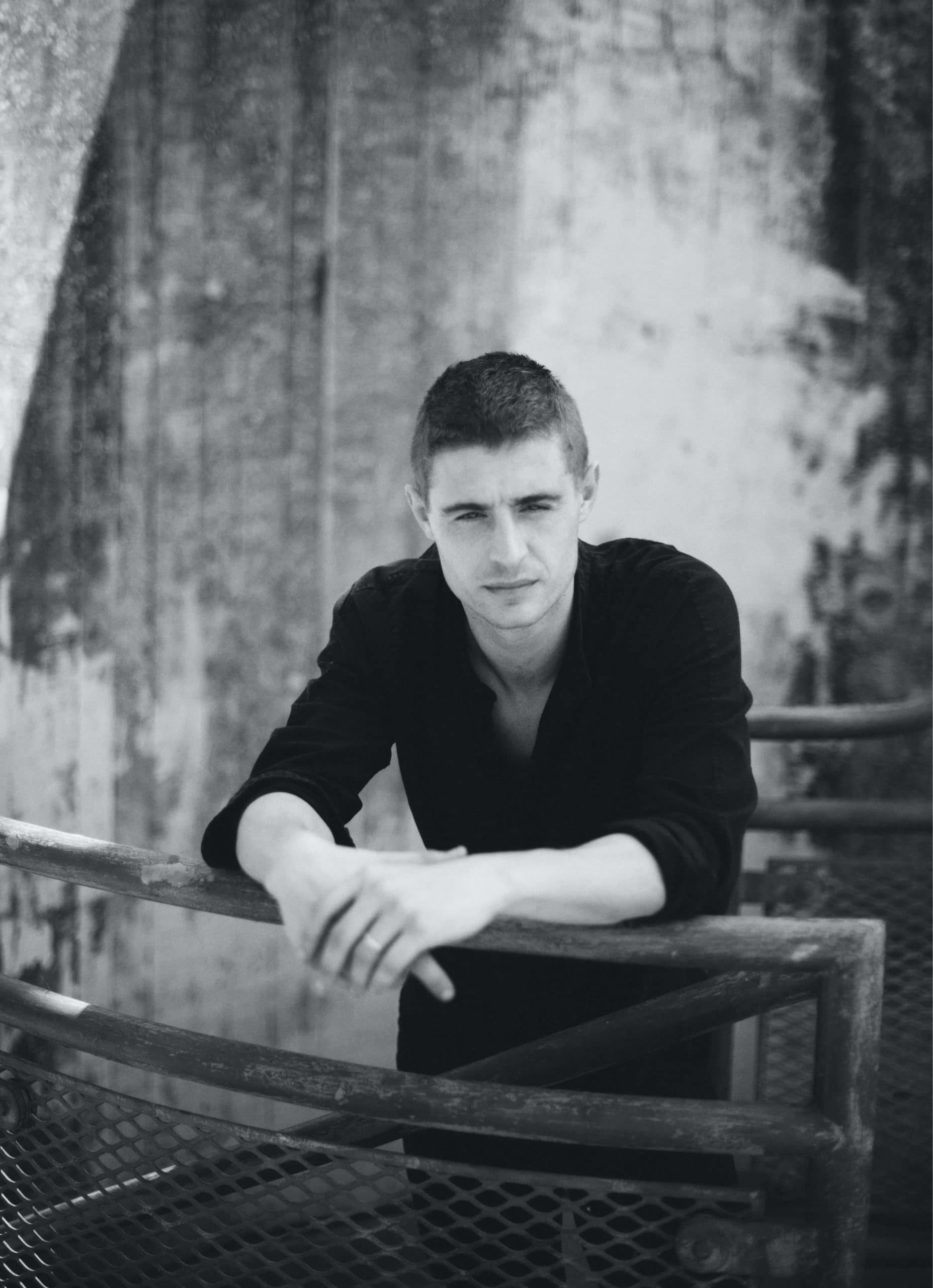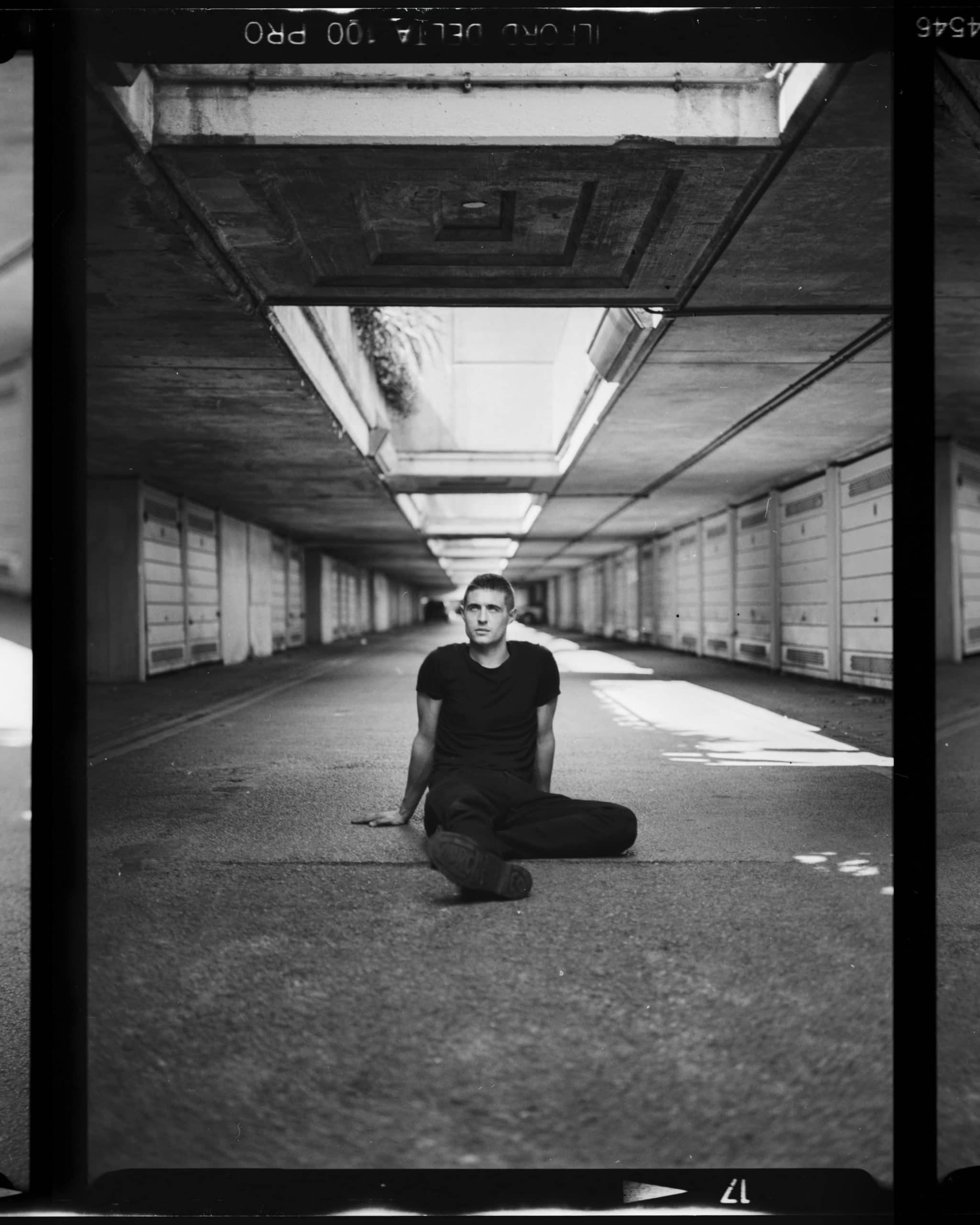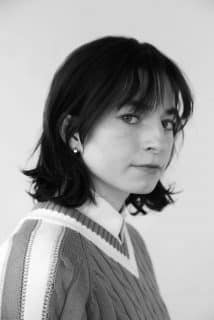Max Irons on remaking Three Days of The Condor
Culture
The British actor talks about his work on the extraordinary CIA thriller 'Condor', being scared of William Hurt, and the trials and tribulations of the acting world.
Of all the great TV around at the moment, perhaps the most surprisingly compelling is ‘Condor’ on Sky One. Not surprising given the talent involved – William Hurt, Brendan Fraser, Mira Sorvino – but it just hasn’t been heralded when compared to some of the Netflix juggernauts. Coming on like a more thoughtful ‘24’ or a less pretentious ‘Mr Robot’, the show revolves around Joe, a computer whiz in the CIA who’s work leads to the thwarting of a terrorist plot to release a plague in a football stadium – but in the process opens up a major can of worms which leads to him being blamed for the plot and going on the run. It is a seriously tense and twisting show with a lead performance by Max Irons as Joe which is both sensitive, captivating and morally ambiguous. It is the perfect platform for Max, son of Jeremy Irons and Sinead Cusack, to seriously deliver on the super-smart and appealing talents we first loved in ‘The Riot Club’. We chatted to Max about the show, his life in lockdown and the demands on mental health when you’re an actor…
Obligatory opening question: how has lockdown been for you?
I remember at the beginning the thing about ‘Oh this is your opportunity to learn German’ or something. I wasn’t one of those people. But I am a cyclist and that’s been a great way to get out for me.
As an actor you’re always worrying in the back of your mind – and the front of your mind somedays – about when your next job is coming. or looking around at parts which you would have liked. There’s always that residual stress. But lockdown has been rather good insofar as no-one is doing anything and it’s not anyone’s fault. So I’ve quite enjoyed not having to worry about work at all.
What happened when ‘Condor’ came along, how did you land the role?
The usual way really. You do these auditions, send them off and then you forget about them. Then I had an email to say they liked me, and I had to fly over for a chemistry read, and it went well. I met the writers which was good because with shows like this you have to be careful. To use the comparison of ’24’, that to me embodied the idea of the Patriot Act, it had quite an aggressive stance towards terrorism and not much investigating of the broader picture. It was far more reactive: find the terrorists, kill them, lock them up, that’s the end of the story.
Because you sign these five year contracts, you want to have a chance to speak to the writers and understand where it’s going. Is it going to be something I’m embarrassed to be associated with and its values? Is it going to be the same kicking doors open and busting bad guys? But what I like about ‘Condor’ is that morally it’s a little up for grabs. And Joe’ the character I play, when you meet him he’s a bit of an idealist, he’s a bit naïve, and he’s wrestling with a lot of things that everyday people wrestle with when they look at government bodies like the CIA or NSA or the institutions that prop up our way of life. Joe asks himself questions and an audience does the same through him.
The original film ‘Three Days of the Condor’ is a classic and came at that time in the 70’s post-Nixon…
Just-post Watergate.
Right, so there was all this government scandal. And now we’re in another time when there’s all this corruption and collusion at the top level, a very murky world – did you have a sense of tapping into that intrigue today?
Yeah I think so. Our writers didn’t try to keep on top of actual current affairs, our show exists in a parallel universe where Trump hasn’t been elected, but some of the same forces are at work. People inherently sense this corruption and double standard of justice depending on who you are and where you’re from. And also you look at the history of the CIA, at their involvement in Africa, or in South America. This stuff isn’t classified now we can see what the CIA were doing down there, and its morally questionable for the most part. Those things that the CIA were up to are the things that allow us to have, I don’t know, fresh avocados year round. Or cheap and plentiful petrol in our cars. Or cell phones that can do extraordinary things. All of these mod cods that we now live with are off the back of a lot of this clandestine activity and we look the other way with regards to these things.
I think people need to be reminded that when you have a cell phone with all of these apps, they take your data and analyse it and offer a service – but you’re haemorrhaging your private data. There’s a hidden cost and you’re enabling organisations that maybe shouldn’t be enabled. And there’s a hidden cost to an enormous amount of things that we do in the West, and particularly north America.
That was the angle that piqued my interest most. And that’s what our show centres around rather than the upper echelons of actual government, it’s the murky, not so documented, clandestine side of the government. But it certainly taps into natural suspicions that people are having now.
The depiction of morality and doing the right thing in a difficult world is interesting. Joe is entangled.
Yeah and decisions are nebulous and the ramifications, the decisions either way, have knock-on effects. When you’re dealing with organisations this large with many motivations it’s not a binary thing, good or bad. You’re always operating in that murky grey area. And we as an audience go with Joe in the death of his naivety.
In terms of depiction of masculinity, Joe is quite vulnerable as a character, he’s afraid a lot of the time. Was it interesting to play in that way than your standard hero?
Oh it’s far more interesting. He’s three dimensional psychologically. And I think it is that vulnerability, that sensitivity, that constant questioning that makes him appealing and makes him effective.
You hear a lot of people say, ‘oh you’re thinking too much’. I don’t know if you can think too much. You can think in the wrong way, you can have bad patterns of thought. Unhelpful, self-hating patterns of thought. But generally self-analysing and looking at your emotions and ethically questioning what you’re doing is broadly a good thing, no matter what.
He is a laptop hero, but he also gets to run around shooting things, did you have to do any skills training for that stuff?
The action stuff is good fun. In terms of skills, I had to learn weaponry, how to handle a gun. Which I really didn’t enjoy. I expected to, but then I went to a shooting range and there was this enormous man who had been in Special Forces. Every wall was covered in every type of gun, bazookas all the way down to P99s, and he handed me this M4 machine gun like it was the most natural thing on earth. I just started sweating and shaking. I hated it, I felt so British and pale, and not designed for it.
But fortunately Joe’s character is not a natural born killer. He’s more of a keyboard warrior so it rather fit.
When you’re doing a show about the CIA does anyone from the organisation show an interest, and want to know what you’re up to or do they not really care?
It’s a bit above my pay grade but I don’t think so. We did have a guy who came to set to check what we were doing was vaguely authentic. He was one of those people who had done people in, you could just tell. He basically ran the northern African wing of the CIA and then he was also active in Iraq and Afghanistan.
But I did read the other day that movies like the Transformers movies where they have all this military gear and hardware – apparently the military gives huge tax breaks for films that paint them in a good light, and advertise their military tech. So I think it’s all part of the psychological spin: ‘let’s glamourise the CIA and imply the NSA’s reach is global and constant.’
Edward Snowden – who was a bit of a case study for me in this part – said for years that the NSA weren’t capable technologically of the things we suspected they were. Eavesdropping on all forms of electronic communication. They now are, but they weren’t at the time, but the fact that people believed they were, was massively important to the CIA. So I think as long as we’re toeing that line they’re happy.
So Edward Snowden was someone you looked at?
Yeah partly because he is that keyboard warrior and also he has that moral and ethical dilemma of what he’s doing which is slightly comparable to Joe. He was partly responsible for coming up with this technology but then had an issue with how it was being used against American citizens and citizens around the world without warrants or oversights or regulation. Which is kind of similar to Joe.

In the show you work with some great actors including William Hurt, what’s he like ?
It’s actually the second time I’ve worked with him, I did a film years back called ‘The Host’ with him. And I’ll be honest with you: he’s terrifying. He’s a terrifying human being. He’s one of those people who has a lot of weight to them and is not afraid to use it to make his point. I rather like that. There can be a preciousness on set. ‘I don’t want to interfere with your process’ that kind of thing. ‘You do you and I’ll do me’ which, while well meaning, can be a slow, ineffective, boring way of doing things. Whereas William Hurt is like a bull in a china shop. The first time I worked with him in ‘The Host’ we actually had a huge argument. He came to set one day and he was in a bit of a bad mood for a good reason, with the production as a whole, and it was a scene with lots of young actors and he was throwing his weight around a bit, to the point where something had to be said. So for better or for worse I went up to him afterwards and we had a bit of an argument. It didn’t last long, maybe five minutes. But out of it was borne a real mutual working respect. And that was great because I wasn’t scared of him anymore.
He’s a very effective actor he’s relentless in his pursuit of the truth, and he’s not afraid to roll his sleeves up. And that is pretty useful as a younger actor like myself or anyone else to witness. He’s fantastic and boy does he have charisma on camera, he’s something else. He’s one of those actors who can be terrifying and heartbreaking at exactly the same time.
Do you feel responsibility for productions in that kind of way, as an actor in front of the camera? Beyond tweaking the odd line, do you feel like you have to be a leader on set?
To be honest with you, yes. For a few different reasons. I’ve done shows in my time where young girls fresh out of drama school – I’m thinking of one production in particular – with a girl on first job, who gets to set and is asked to take her shirt off. That’s not a good environment, so you have to stand up to that.
But also from a selfish point of view, it’s you on the screen and once it finishes you’re still on the internet. There’s a real permanency to it. And while every role on a production is essential, you’re the one on the screen and unfortunately, especially in television, the director may not necessarily be remembered, but the actors will. So you’ve got to fight those battles.
Knowing when to acquiesce is important, knowing when you’re wrong is important, and knowing how to resolve conflict is important. That’s something personally I’ve always struggled with: you don’t want to scorch the earth. And I’m learning in life more and more that you can win an argument but it doesn’t necessarily mean you’ll win long term. You can win an argument but blow a relationship. It’s about doing it the right way.
In terms of mental health and the pressures of being an actor, how do you manage it and what kind of pressures do you face?
There’s a few things. What I see with a lot of people is thinking your worth as an actor is equated with your worth as a human. And you do face rejection for so many reasons, most of which you’ll never know. You can walk into a room and someone in there won’t like the cut of your jib, and you have to not take that personally. If possible even learn from it and not internalise it and take it as a deficiency of your own character or the way you look. So that’s number one.
Also, in my opinion social media is the stuff of the devil for pretty much everybody. I don’t see a single good thing in it and the whole thing of being able to keep in contact with people is vastly outweighed by how it affects our self-esteem. So I don’t do any of that.
I look at actors who are active on social media and do play the game in a way I never have, probably to the detriment of my own career. I don’t particularly enjoy going to the parties, when I go to a premiere I watch the first five minutes and then I’m gone. And it’s not because I can’t be bothered it’s because I can’t take it.
I have a real line in the sand where my work is here and my life is here. I love my work but contrary to what ‘X Factor’ philosophy would have you believe, it’s not what I was born to do, its not the centre of my universe: it’s a compartment of my life which enables other compartments of my life. Thinking in that way has allowed me to retain some sense of self and some sense of sanity. Because this business isn’t fair and any day that may be it for you by no fault of your own. Living with that reality requires a certain amount of detachment.
What else do you have coming up?
I was supposed to be doing a theatre show at the Donmar about climate change but that’s on hold. The theatre is going to be one of the last things to come back, I can’t imagine a world anytime soon where people are willing to sit in a dark hot stuffy space with pensioners coughing for three hours. And film is starting to wind up – the larger productions, like the new Tom Cruise Mission Impossible film, are figuring out how to do it safely with the insurance companies, and the smaller productions will follow suit. But at the minute there’s nothing happening. But I’m alright with the little break.
Have you been working on new skills?
Gardening. I’ve only got a terrace, but its covered in green now. My dad is always gardening, it’s his favourite thing, and boy there’s something to it. I love it, it’s the most peaceful part of my day going out and watering the plants. And cycling. In terms of mental health there’s nothing better in my opinion, you get out, clear your mind, exercise, and generally if I go out in a mood I come back in a better one. If I go out with a problem I come back with it solved.
Zac Efron was mocked recently for having a ‘dad bod’ in a film, have you experienced pressures in terms of your body?
You have to be aware of it. The reality is if you’re too far either way you are limiting your casting options. You have sit in the middle knowing in two months with casting opportunities you could go either way. I think the actors who don’t fixate on it tend to have the more interesting parts and more interesting careers. Because they reflect regular people. I saw a film recently and one of the Avengers was playing a normal human and his shirt was stretched so far out over his shoulders…and you just don’t buy it.
Going to LA is funny as an English actor. You do have to go out and do the rounds. You get looks. ‘You’re a bit pasty, you smell of smoke, your teeth are yellow, why haven’t you got muscles?’
I was in an awful film years ago called ‘Red Riding Hood’, and I had to go out and do a chemistry test. I thought it was just going to be three or four Brits flown out but there were about 20 Americans there too, and we all had to sit in this room waiting, taking turns to go in, and do chemistry tests with Amanda Seyfried. But the psychological warfare employed in that room was mad. You had guys taking their shirt off, doing press up with claps and then saying, ‘Yeah I hear they don’t want British people because they look vitamin deficient.’
Condor is on Sky One now: all of season one with Season Two continuing weekly.
All images by Pip.
Watch our full interview with Max below:
Trending

Join The Book of Man
Sign up to our daily newsletters to join the frontline of the revolution in masculinity.

















